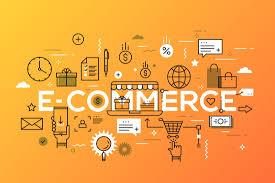
In today's digital economy, payment gateways play a pivotal role in facilitating secure and efficient online transactions. Whether you're running an e-commerce store, a subscription service, or a digital marketplace, selecting the right payment gateway is crucial for enhancing customer experience and maximizing revenue. This blog explores key considerations and best practices to help you navigate the landscape of best payment gateways effectively.
Key Factors to Consider When Choosing a Payment Gateway
When evaluating payment gateway options for your online business, several critical factors should influence your decision:
Security and Fraud Prevention Features
Security is paramount in online transactions. Look for payment gateways that offer robust fraud prevention measures, such as tokenization, SSL encryption, and PCI DSS compliance. These features ensure that sensitive customer data is protected throughout the payment process.
Integration Options with E-commerce Platforms
Seamless integration with your existing e-commerce platform is essential for operational efficiency. Choose a payment gateway that supports popular platforms like Shopify, WooCommerce, Magento, and others. APIs and plugins should be well-documented and easy to implement, minimizing development time and costs.
Accepted Payment Methods and Currencies
To cater to a global customer base, opt for a payment gateway that supports a wide range of payment methods (credit cards, debit cards, digital wallets, etc.) and currencies. Flexibility in payment options enhances customer convenience and expands your market reach.
Popular Payment Gateways: Features and Comparison
Review of Leading Payment Gateway Providers
There are several prominent payment gateway providers in the market, each offering unique features and pricing structures. Here's an overview of some popular options:
- Stripe: Known for its developer-friendly APIs and extensive customization options.
- PayPal: Widely recognized for its global reach and buyer protection policies.
- Authorize.Net: Offers robust security features and a user-friendly interface.
- Square: Ideal for small businesses with its integrated payment solutions and transparent pricing.
Comparison of Transaction Fees, Setup Costs, and Contract Terms
Evaluate transaction fees, setup costs, and contract terms carefully to align with your budget and business goals. Some providers may charge monthly fees, per-transaction fees, or setup fees, while others offer pay-as-you-go pricing models. Consider scalability and volume discounts as your business grows.
Highlighting Unique Features and Target Markets for Each Gateway
Each payment gateway provider has distinct features tailored to different business needs. For example, Stripe's support for recurring billing is ideal for subscription-based services, while PayPal's international payment capabilities cater to global e-commerce businesses. Understanding these nuances helps in choosing a solution aligned with your specific requirements.
Technical Considerations for Integration
API Documentation and Developer Support
Smooth integration relies on comprehensive API documentation and responsive developer support. Evaluate the gateway's developer resources, including SDKs, code samples, and sandbox environments for testing. A developer-friendly gateway simplifies customization and ensures seamless integration with your e-commerce platform.
Compatibility with Existing IT Infrastructure
Consider how well the payment gateway integrates with your existing IT infrastructure, including CRM systems, accounting software, and inventory management tools. Compatibility ensures data synchronization and operational continuity across different business functions.
Ease of Customization and Scalability
Scalability is essential for growing businesses. Choose a payment gateway that offers scalability through customizable features, such as branded checkout pages, multi-currency support, and advanced reporting capabilities. Scalable solutions accommodate evolving business needs and support expansion into new markets.
User Experience and Checkout Optimization
Seamless Checkout Process and User Interface Design
A streamlined checkout process is crucial for reducing cart abandonment rates and improving conversion rates. Look for payment gateways with intuitive user interfaces, mobile-optimized designs, and support for one-click payments. A frictionless user experience enhances customer satisfaction and encourages repeat purchases.
Mobile Compatibility and Payment Gateway Responsiveness
With mobile commerce on the rise, prioritize payment gateways that offer seamless mobile compatibility. Mobile-responsive design, support for mobile wallets like Apple Pay and Google Pay, and secure in-app payments enhance convenience for mobile shoppers.
Impact of Payment Gateway on Conversion Rates and Customer Satisfaction
The performance of your chosen payment gateway directly impacts conversion rates and customer satisfaction. Monitor key metrics such as checkout abandonment rates, transaction success rates, and customer feedback to optimize the payment experience continually. Responsive customer support and transparent communication mitigate issues promptly, fostering trust and loyalty among your customer base.
Security and Compliance Standards
PCI DSS Compliance Requirements
Payment Card Industry Data Security Standard (PCI DSS) compliance is non-negotiable for handling payment information securely. Ensure that your chosen payment gateway adheres to PCI DSS standards and maintains certification through regular audits and assessments. Compliance demonstrates a commitment to protecting customer data and mitigating cybersecurity risks.
Data Encryption and Secure Payment Processing
Advanced data encryption protocols, such as tokenization and end-to-end encryption, safeguard sensitive customer information during transmission and storage. Secure payment processing protocols ensure that payment details are protected from unauthorized access and fraud attempts.
Handling Customer Data and Privacy Concerns
Maintaining customer trust requires transparent data handling practices and compliance with data protection regulations (e.g., GDPR, CCPA). Implement robust data security measures, secure data storage practices, and clear privacy policies to safeguard customer privacy rights. Proactive communication about data handling practices enhances transparency and fosters a positive customer experience.
Customer Support and Service Reliability
Availability of 24/7 Customer Support
Responsive customer support is essential for resolving payment issues promptly and minimizing disruptions to business operations. Choose a payment gateway provider that offers 24/7 customer support through multiple channels (phone, email, live chat) to address technical inquiries, payment disputes, and service interruptions effectively.
Reputation for Uptime and Transaction Reliability
Evaluate the payment gateway's track record for uptime and transaction reliability. High availability ensures uninterrupted payment processing, even during peak sales periods or system maintenance. Reviews and testimonials from other businesses can provide insights into the provider's reliability and service quality.
Handling of Disputes and Chargebacks
Dispute resolution processes and chargeback management capabilities are critical considerations for mitigating financial risks. Understand how the payment gateway handles disputes, facilitates chargeback responses, and supports fraud prevention measures. Clear policies and proactive dispute management contribute to maintaining a positive merchant reputation and minimizing financial losses.
Choosing a Payment Gateway: Considerations for Different Business Models
Requirements for Subscription-Based Businesses
Subscription-based businesses require recurring billing capabilities and subscription management features. Choose a payment gateway that supports automated billing cycles, subscription upgrades/downgrades, and subscription analytics to streamline revenue management and subscriber retention.
International E-commerce Considerations
Global e-commerce operations demand payment gateways with international payment capabilities, multi-currency support, and localized payment methods. Consider regional preferences and regulatory requirements when selecting a gateway to facilitate seamless cross-border transactions and expand market reach.
High-Risk Business Considerations and Specialized Solutions
High-risk industries, such as adult entertainment, gambling, or pharmaceuticals, require specialized payment solutions tailored to mitigate industry-specific risks. Seek payment gateways with expertise in high-risk merchant processing, robust fraud prevention measures, and compliance with industry regulations. Transparent fee structures and risk management tools protect against financial liabilities and regulatory scrutiny.
Conclusion
Choosing the best payment gateway for your online business involves strategic assessment of technical capabilities, security features, user experience enhancements, and compliance standards. By prioritizing seamless integration, customer-centric design, and robust security protocols, businesses can optimize payment processing efficiency, enhance customer satisfaction, and drive revenue growth. As payment technology evolves and consumer preferences shift, staying informed about emerging trends and adopting innovative payment solutions ensures that your business remains competitive in the digital marketplace.
Leave a Reply
Related Products
You Might Like Also

A Guide to Laravel Payment Gateway Integration for Developers
Discover how to implement secure and efficient Laravel payment gateway integration, ensuring smooth transactions for your application Read More

Top 15 Web Development Problems and Their Solutions
Discover top web development problems and their solutions. Learn how to tackle performance issues, security vulnerabilities, and more for a robust web application. Read More

Advantages of E-commerce Microservices Architecture
Explore the advantages of ecommerce microservices architecture and how it can enhance scalability, performance, and efficiency for your online store. Read More

Building a Shopify Store: Key Considerations
"Discover key considerations for building a Shopify store, from plan selection to SEO, payment gateways, and exploring Shopify alternatives." Read More

Leveraging AI with Salesforce Service Cloud
Discover how AI enhances customer service with Salesforce Service Cloud. Learn key features, best practices, and future trends for seamless AI integration. Read More

Explore how Django's features create scalable workflows and compare Odoo vs Django for efficient development. Read More










